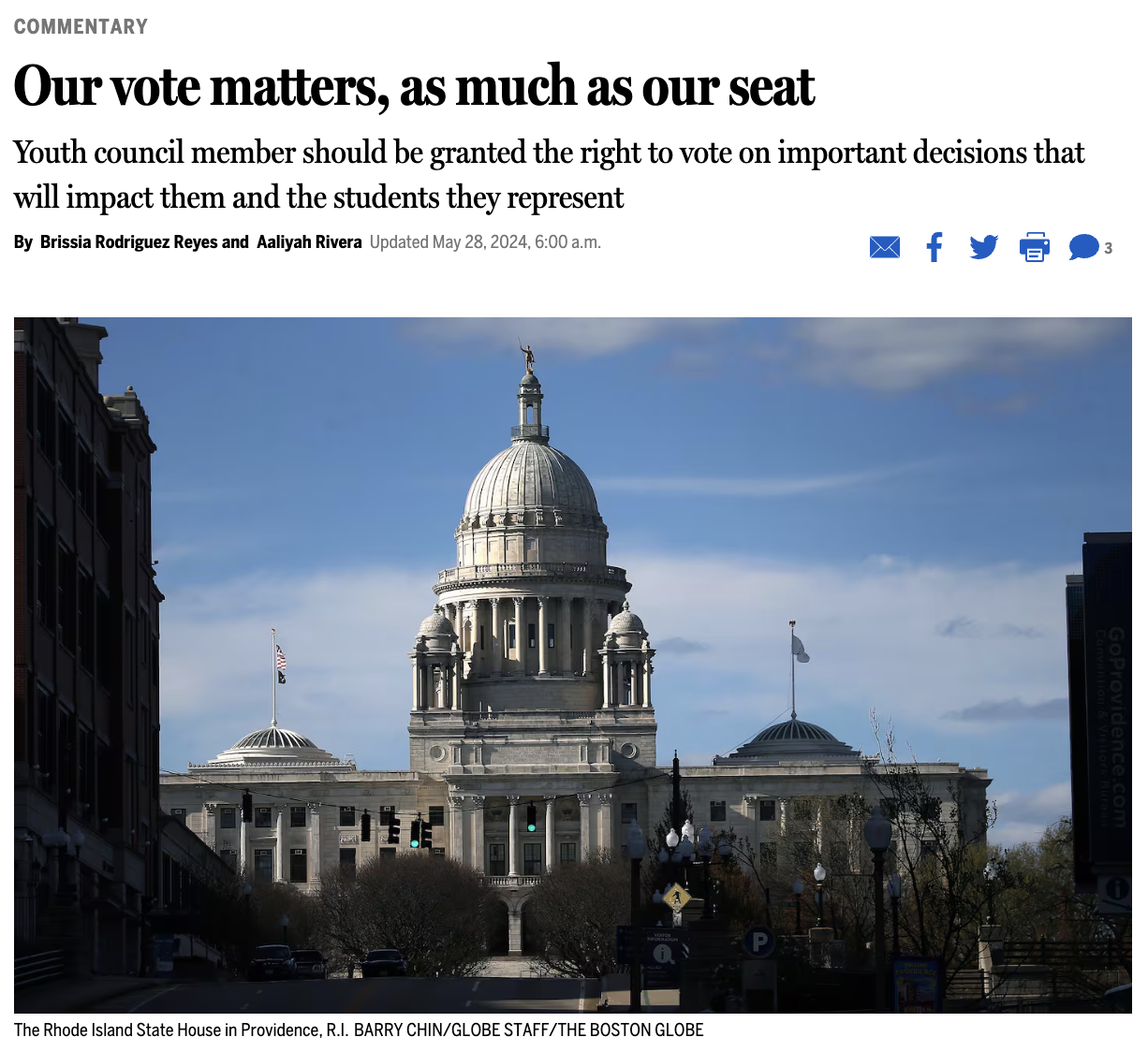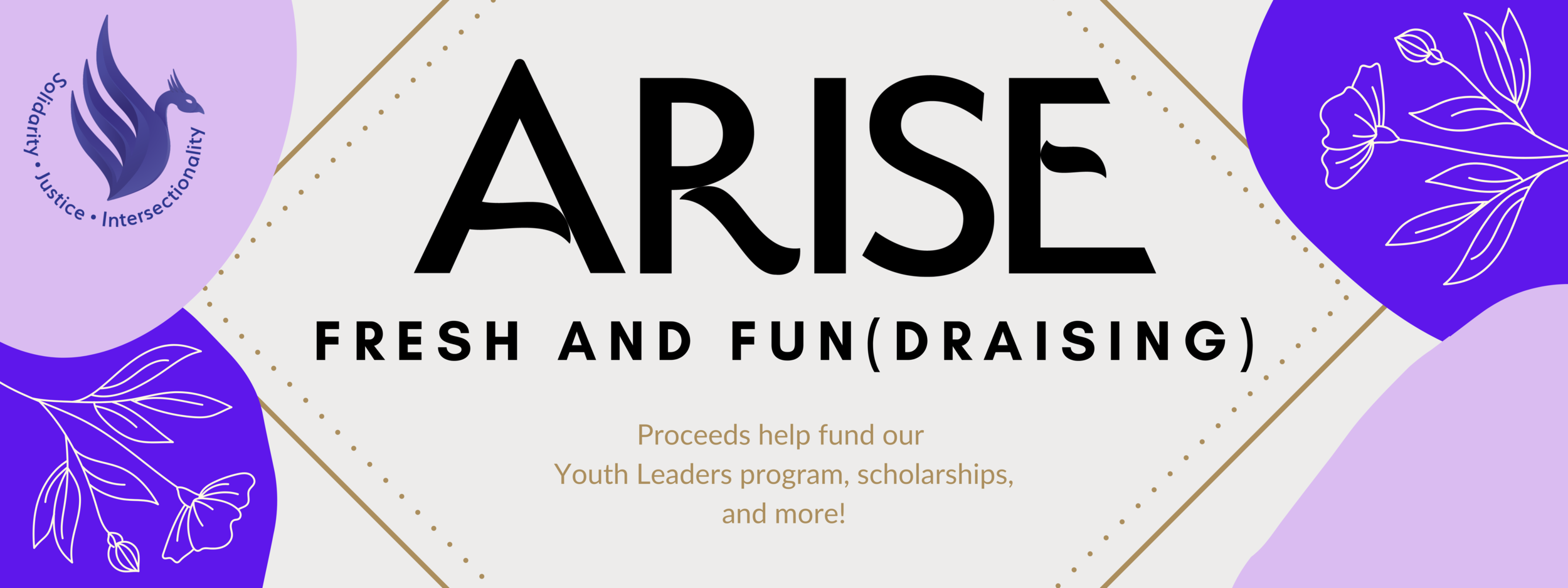Youth council member should be granted the right to vote on important decisions that will impact them and the students they represent
By Brissia Rodriguez Reyes and Aaliyah Rivera (Read the article on the Boston Globe here)
The Rhode Island State House in Providence, R.I.BARRY CHIN/GLOBE STAFF/THE BOSTON GLOBE
For the past three years, Rhode Island KIDS COUNT has convened youth for the Anti-Racist Education Policy Collaborative in partnership with Youth In Action, Young Voices, Alliance of RI Southeast Asians, Providence Student Union, and Parents Leading for Educational Equity to support equitable educational policies. Students have advocated for changes in our education system, including reducing out-of-school suspensions for non-violent infractions and addressing the youth mental health crisis by increasing access to mental health professionals in schools. Since last year, a major focus has been on the Rhode Island Council on Elementary and Secondary Education, the state board that makes critical decisions on policies that directly impact youth and includes one youth board member.
The Rhode Island Board of Education Act established the Council on Elementary and Secondary Education, with eight members appointed by the Governor. It also creates a Student Advisory Council, including one elected student from each public high school. The members of the Student Advisory Council then elect a chairperson to serve a one-year term as an ex officio and non-voting member of the Council on Elementary and Secondary Education.
Though this youth has a seat at the council table, they are not granted the right to vote on important decisions that will impact them and the students they represent. In contrast, in Massachusetts, a state that Rhode Island often looks to as a model for its policies, the youth chairperson has full voting rights. And it’s not just Massachusetts; states like Washington have two youth members on their council with voting rights. So why hasn’t Rhode Island followed suit?
A glimpse into last March’s House Education Committee hearing provides some insight into the thought process of the Rhode Island Department of Education (RIDE). During the hearing, a RIDE representative argued that they were protecting students from potential lawsuits, both for the youth individually and for the decisions enacted by the council. Though this could be a legitimate concern, measures could be implemented to protect the young person serving on the board.
Last year, when advocates fought for this bill, the RIDE representative argued that serving on the council was a beneficial learning experience that allowed students to build their resumes. We argue that not giving youth voting power prevents them from having the voice and power they deserve. Brookings Institution researchers stress the importance of prioritizing inclusivity, accessibility, and unity in research and practice by centering youth voices and challenging power dynamics. This entails moving beyond tokenism to recognize youth as essential partners. Breaking down barriers and shifting from “giving youth voices” to “centering youth voices” is crucial for restructuring power hierarchies and acknowledging youth’s vital contributions to education research and practice. As student Marco Lima said at last year’s hearing, “I don’t want to go somewhere just to be sitting there and listening. I want to go there to advocate for youth.”
Advertisement
Youth have demonstrated the need for a voting member on the council. They are demanding this right through House Bill 7614 and Senate Bill 2287, bills they helped draft in collaboration with the bill sponsors.
Adults often pride themselves on being the holders of wisdom and position themselves as strong moral compasses for youth. However, adults often overlook the strong moral compass youth already have due to their lived experiences. What would it look like to provide an opportunity to center youth voice as the moral compass in our decisions regarding the education system? This is that opportunity! We need to empower youth’s voices today, not tomorrow.
Brissia Rodriguez Reyes is a Youth Advocate and board member with Young Voices and a student at Classical High School. Aaliyah Rivera is a Youth Leader for the Alliance of Rhode Island Southeast Asians for Education (ARISE) and a student at Classical High School.


